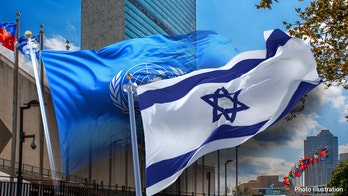President Arce Quells Fears of Coup Attempt, But Questions Linger
- June 28, 2024 11:03pm
- 331
Bolivian President Luis Arce has denied allegations of orchestrating a coup attempt, but the arrest of several high-ranking military officers and inconsistencies in the government's narrative have raised suspicions about the true nature of the incident.
Bolivian President Luis Arce has vehemently denied accusations of being behind a failed coup attempt against his government, labeling them as "lies." However, the arrest of 17 individuals, including the army chief, and conflicting accounts of the events have cast a cloud of uncertainty over the true nature of the incident.

President Arce Quells Fears of Coup Attempt, But Questions Linger
Arce's denial came after General Juan José Zúñiga, who led the military forces that seized control of the capital's central square on Wednesday, alleged that the president directed the mutiny to bolster his flagging popularity. Zúñiga's claims have been strongly denied by Arce and his government.
"I am not a politician who is going to win popularity through the blood of the people," Arce asserted, vowing that Zúñiga would face justice.

President Arce Quells Fears of Coup Attempt, But Questions Linger
Despite the president's insistence, opposition senators and government critics have expressed skepticism, calling the mutiny a "self-coup." Bolivians themselves are divided, with some believing Zúñiga's allegations and others dismissing them as a political ploy.
The failed coup attempt has sparked widespread concern about the stability of Bolivia, which is already grappling with economic challenges and political turmoil. Arce has been locked in a deepening rivalry with former President Evo Morales, his erstwhile ally who has threatened to challenge Arce in 2025.
Analysts say the eruption of public support for Arce, even if fleeting, provides him with a reprieve from the country's economic quagmire and political turmoil. However, they caution that it is no solution to the underlying issues that have plagued Bolivia.
The short-lived mutiny followed months of mounting tensions between Arce and Morales, who has staged a dramatic political comeback since mass protests and a deadly crackdown forced him to resign and flee in 2019. Morales' allies in Congress have made it almost impossible for Arce to govern, while the cash crunch has ramped up pressure on the president to scrap food and fuel subsidies.
Defense Minister Edmundo Novillo claims that Zúñiga's coup attempt was rooted in a private meeting Tuesday in which Arce sacked the army chief over threats to arrest Morales if he proceeded to join the 2025 race. However, Zuñiga's admission of "excesses" and his lack of preparation for a power grab have raised further questions.
Pro-democracy advocates have expressed doubt that the government-led investigation will be impartial or reliable, given the lack of judicial independence in Bolivia. "We probably will never know" the full truth, said Juan Pappier of Human Rights Watch.
As Bolivia grapples with the aftermath of the failed coup attempt, the nation's stability remains in question. The unresolved suspicions and ongoing political divisions pose a significant challenge to Arce's presidency and the future of the country's democracy.
Related articles
-
 American Tourist Nearly Loses Life After Horrific Fall in Switzerland
Logan Moore, a 25-year-old American tourist, miraculously survived a 50-foot, headfirst fall off a cliff in Switzerland. The incident occurred while...
American Tourist Nearly Loses Life After Horrific Fall in Switzerland
Logan Moore, a 25-year-old American tourist, miraculously survived a 50-foot, headfirst fall off a cliff in Switzerland. The incident occurred while...
- 01 Jul 2024
-
 The Rise of the French Right: Jordan Bardella Poised to Become Prime Minister
France's right-wing National Rally party has made significant gains in the country's parliamentary elections, putting centrist President Emmanuel...
The Rise of the French Right: Jordan Bardella Poised to Become Prime Minister
France's right-wing National Rally party has made significant gains in the country's parliamentary elections, putting centrist President Emmanuel...
- 01 Jul 2024
-
 United Nations Official Faces Calls for Resignation Over Anti-Semitism Allegations
Francesca Albanese, the special rapporteur on the Palestinian territories for the United Nations, is facing widespread condemnation for her alleged...
United Nations Official Faces Calls for Resignation Over Anti-Semitism Allegations
Francesca Albanese, the special rapporteur on the Palestinian territories for the United Nations, is facing widespread condemnation for her alleged...
- 30 Jun 2024
-
 Biden's Debate Disaster Raises Alarm, Sparking 25th Amendment Concerns
Senator John Barrasso expresses grave concerns about President Biden's mental fitness after a disastrous debate performance that has ignited debate...
Biden's Debate Disaster Raises Alarm, Sparking 25th Amendment Concerns
Senator John Barrasso expresses grave concerns about President Biden's mental fitness after a disastrous debate performance that has ignited debate...
- 30 Jun 2024
-
 Jordan Bardella: A Young Firebrand Shaking Up French Politics
As France gears up for elections, Jordan Bardella, the 28-year-old president of the National Rally, is emerging as a formidable force on the right,...
Jordan Bardella: A Young Firebrand Shaking Up French Politics
As France gears up for elections, Jordan Bardella, the 28-year-old president of the National Rally, is emerging as a formidable force on the right,...
- 30 Jun 2024
-
 Adversaries Mock U.S. After Biden's Faltering Debate Performance, Claiming America the Real Loser
Leading up to the debate, foreign adversaries expressed skepticism and outright mockery towards the two candidates, particularly Biden, casting doubt...
Adversaries Mock U.S. After Biden's Faltering Debate Performance, Claiming America the Real Loser
Leading up to the debate, foreign adversaries expressed skepticism and outright mockery towards the two candidates, particularly Biden, casting doubt...
- 29 Jun 2024

Leave a comment
Your comment is awaiting moderation. We save your draft here
0 Comments
Chưa có bình luận nào